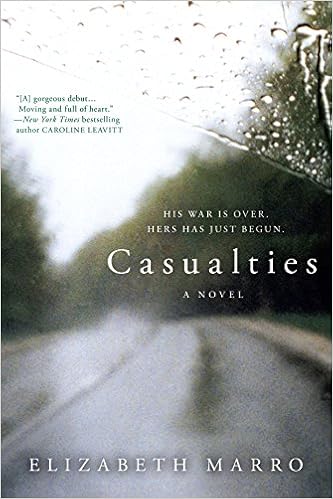It’s time for me to list five books I loved in 2016. As always, I leave off the bestsellers—those ten titles you’ve read about ten times in the last ten weeks of top ten books lists. (I'd love to talk about The Underground Railroad but I haven't read it yet!). I tried to keep it to works published in 2016, but made exceptions for two recent works I discovered this year.
I am also, as always, not including on this list the books I edited in 2015, but I can't help mentioning two of the excellent books I help to bring to the world—they'd make great gifts.
Gayle Carline’s latest, A More Deadly Union (Peri Minneopa Mysteries Book 4) is a good mystery and a whole lot more. Gayle is taking on some key social issues here, but she doesn’t allow any of it to get in the way of the fast-paced story. I enjoy working with her—she works so hard on her manuscripts, I get to really dig in, as I'm not distracted by superficial errors. And there's a dog in it!
Another book I edited this year is The Dining Car by Eric Peterson. Eric and I go way back, and it has been a pleasure to see his writing mature and evolve. I had such fun with all the food and drink references, and probably gained a few pounds doing "research"! So far, the critical reception has been phenomenal, which makes me happy and proud. Bottom line: Private railcars, haute cuisine, and finely crafted cocktails. Who wouldn’t love that combo?
So...On to my "top five" list for 2016, in no particular order:
1. Dete Meserve shows up on my Top Five Books List two years running with Perfectly Good Crime. Like her debut novel, Good Sam, this novel explores our society’s fascination with both crime stories and heart-warming human interest stories. Set in Los Angeles, Perfectly Good Crime has a protagonist you can believe in, even though most of us have never worked in television news. And, in spite of its timely insights into wealth, politics, and the media, the book is a fun read, with breathtaking descriptions of outrageously over-the-top mansions that rival anything from “Lifestyles of the Rich & Famous.”
2. The best title on this list goes to The Awful Mess: A Love Story by Sandra Hutchison, and the book lives up to its name and then some. As much as I liked Mary Bellamy and related to her—she is an editor, like me, and a young woman, which I remember being—she is only the main ingredient of this book’s delectable stew of characters. Wait until you meet Arthur, an Episcopal rector with great charm and serious secrets, and Winslow, a small-town cop who's a part-time farmer, and full-time heartthrob. And then there’s Winslow’s dad, Bert, and…You see what I mean. Check it out if you like thoughtful romance!
3. Everyone who knows me knows I love theater, and one of my favorite reads this year was Follies of God: Tennessee Williams and the Women of the Fog by James Grissom. I had heard a lot about it on social media and I tried a sample of the ebook and was hooked. I’d shelve this rambling tome under “biography as memoir," since I learned almost as much about Mr. Grissom as I did about Mr. Williams. That might sound odd, but it worked perfectly. After all, Tennessee Williams was probably a very different person to everyone that knew him—he was, quite obviously, a theatrical character in his "real" life, as well as the second-best creator of living, breathing, believable theatrical characters, ever (Shakespeare, duh!).
4. The Popcorn Girl by Michael J Vaughn was a lovely surprise. The chapters are told by alternating first-person narrators Paul and Jasmina, and I never had that feeling such a novel usually produces: “Dang, it’s another Bob chapter, I can’t wait to get back to a Mary chapter” or vice-versa. It’s not often that a writer can make a character both lovable and an atheist, but Vaughn has done it; Paul is not only a person I would want to know, he's definitely a guy I would have fallen for, had I been Jasmina. I won’t tell you if she eventually does or not—that's part of the fun of this book—but I can say that these two characters (and the whole "cast") are so compelling I didn’t want the book to end.
5. The Wide Night Sky by Matt Dean is another winner. Dean is a former finalist for the LAMBDA Literary Awards and it shows, both in the assured way he deals with an eclectic array of sexualities and in his artful prose. His previous novel, The River in Winter, is also fine, and much more “political," if that's the right word, but I love the family dynamic here. I’m a sucker for dysfunctional families as long as there’s also plenty of love and this book maintains that balance perfectly. And...the ebook is currently FREE!
2/29/20 RMB Leap Year and a tinkering Universe
5 years ago









